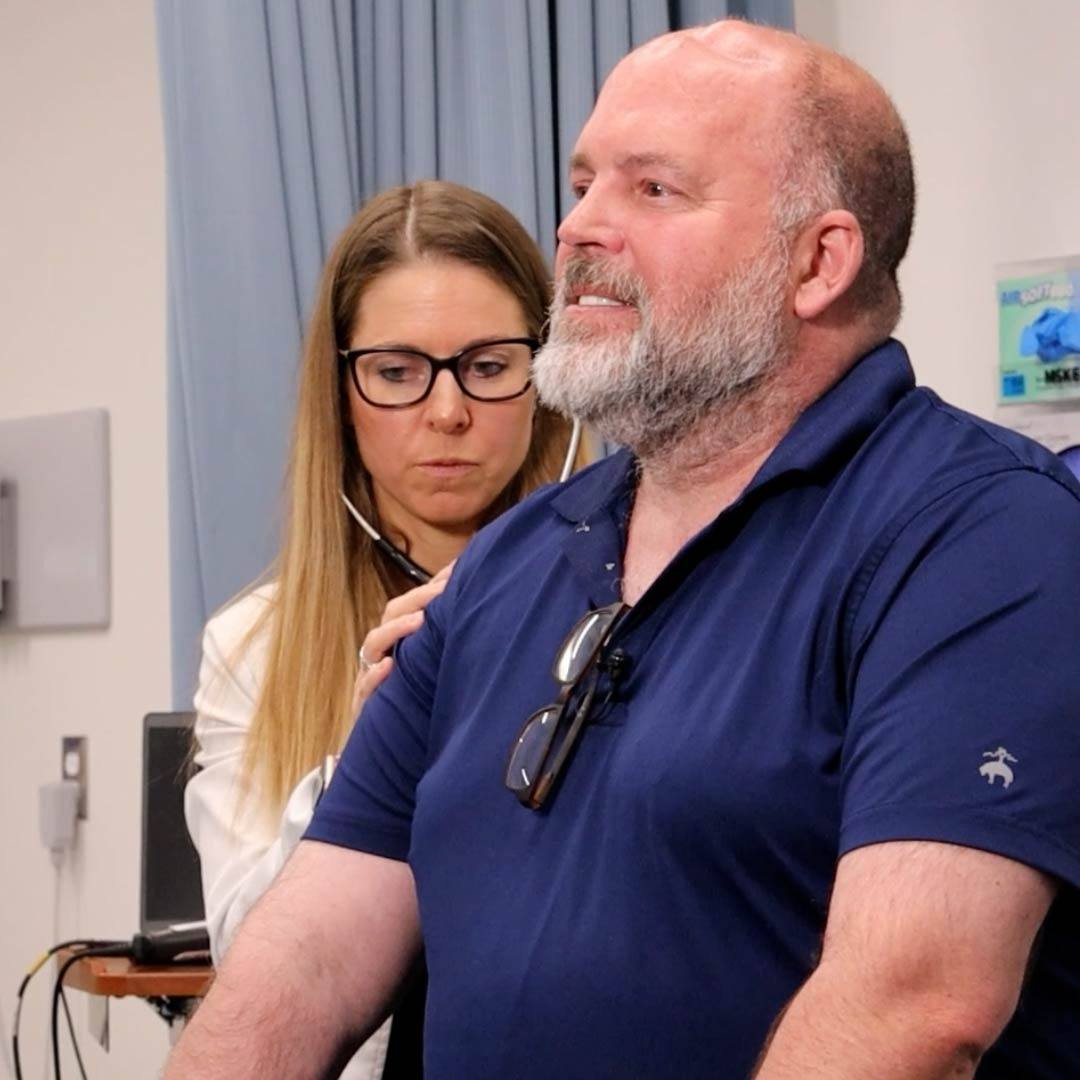Mayo Clinic researcher John Fryer, Ph.D., is hopeful the work in his laboratory will yield insights into Alzheimer's disease, as well as sepsis — an often-deadly condition which claimed his father's life in 2016.
When he received a text message from his mother in Arizona telling him that his father had been diagnosed with sepsis, John Fryer, Ph.D., knew he had to move quickly.
Sepsis, a runaway inflammation response to infection, can be deadly. It strikes more than 1 million Americans every year, killing between 28 and 50 percent of those affected, according to the National Institutes of Health.
Dr. Fryer received the message about his father in October 2016. It came less than 48 hours after Dr. Fryer's laboratory at Mayo Clinic learned that its greatest discovery — about sepsis, no less — would be published in Molecular Psychiatry, one of the world's leading research journals. The afterglow from that achievement would disappear quickly.
"As soon as I saw the message, I called my wife, and within two hours, I was on a flight to Arizona," Dr. Fryer says.
By the time Dr. Fryer arrived in Arizona, the inflammatory response was unstoppable. His father, Ron Fryer, who was also battling end-stage renal disease, was receiving palliative care to make him as comfortable as possible. Over the next few hours, with Dr. Fryer in the hospital room, Ron Fryer slipped into unconsciousness. He died less than 48 hours later.
"I couldn't stop being a scientist and wishing I had been further along in my research because, maybe, it could have helped my father," Dr. Fryer says. "At the same time, I was glad I knew about sepsis and recognized that I had to leave immediately when I received my mother's message. That was very fortunate, because I got to see my dad and have a conversation with him before he lost consciousness."
An intriguing link
Dr. Fryer's ability to focus on the positive within the whirlwind of events that surrounded his father's death reflects a resiliency that has served him well.
"You have to be malleable — willing to adjust — if you want to have a successful research career," he says.
Dr. Fryer is a neuroscientist at Mayo Clinic's Florida campus whose primary focus is Alzheimer's disease. He began studying sepsis because people who survive sepsis often have a period of delirium, and they have significantly greater risk of cognitive impairment and dementia.
Dr. Fryer and his team had their resolve tested before their sepsis discovery. At an early point in the research, they reluctantly decided to put the project on hold due to lack of funding.
"It's the most important discovery I've made since I started my lab in 2011, and it wouldn't have happened without the Gilmers." — John Fryer, Ph.D.
"I told the team we had to put the project on pause. I didn't want to say 'stop,' so I just said 'pause,'" says Dr. Fryer, who is also assistant dean of Mayo Clinic Graduate School of Biomedical Sciences. "Everyone was surprised, and their shoulders just slumped. It was still bothering me when I got home."
A few days later, everything changed when Dr. Fryer's lab received a gift from Gary and Marilyn Gilmer, who are members of Mayo Clinic's Florida Leadership Council and recognized as major benefactors.
A crucial discovery
With the Gilmers' funding, Dr. Fryer's team renewed its efforts and discovered that a protein called lipocalin-2, or LCN2, may serve as a doorway for creating the first strategies to protect people from the cognitive effects of sepsis. The protein also may be useful for diagnosing sepsis earlier, which is essential to reduce the number of lives it claims.
"It's the most important discovery I've made since I started my lab in 2011, and it wouldn't have happened without the Gilmers," Dr. Fryer says. "We think we may be able to target LCN2, either directly or indirectly, to reduce inflammation during sepsis and protect the brain. We also think measuring LCN2 levels may be helpful for determining if a patient is developing sepsis."
For the Gilmers, the discovery had a double impact.
"We seized the opportunity to support Dr. Fryer's research because our family has firsthand experience with the devastating effects of dementia," Gary Gilmer says. "Little did we realize that he and his team would so quickly make a discovery that has potential for improving the treatment of two terrible conditions."
A connection to patient care
The next steps for Dr. Fryer and his team are to screen drugs that may work with LCN2 to protect the brain from sepsis and similar syndromes. They are already screening thousands of drugs that have approval from the Food and Drug Administration and are part of the National Institutes of Health's Clinical Collection. The team is also focused on better understanding the mechanisms that may connect sepsis with cognitive impairment and dementia.
At the same time, Dr. Fryer's team is working with clinical colleagues to develop other strategies to improve sepsis care. Mayo Clinic has a sepsis response team that defines best practices for preventing and treating sepsis in hospitalized patients. Dr. Fryer's laboratory is working with them to create new ways to identify sepsis earlier.
"The good news is that Mayo Clinic is the best place to take all of these next steps." — John Fryer, Ph.D.
For example, he thinks it may be possible to use genomic technologies to identify pathogens earlier and start a patient on antibiotics sooner. Dr. Fryer developed additional expertise in genomics through a Gerstner Family Career Development Award. This grant, created through philanthropy from the Gerstner Family Foundation, is awarded through the Mayo Clinic Center for Individualized Medicine. It gives seed funding to young investigators who are pursuing genomic approaches to improve prediction, prevention and treatment of diseases.
"The good news is that Mayo Clinic is the best place to take all of these next steps," Dr. Fryer says. "Collaborating with physicians and pushing the boundaries of translational science is our greatest strength, and that's where this research is headed. In fact, we've already started."
HELPFUL LINKS
- Read more about Fryer's laboratory.
- Learn about the Center for Individualized Medicine.
- Explore research at Mayo Clinic.
- Request an appointment.








